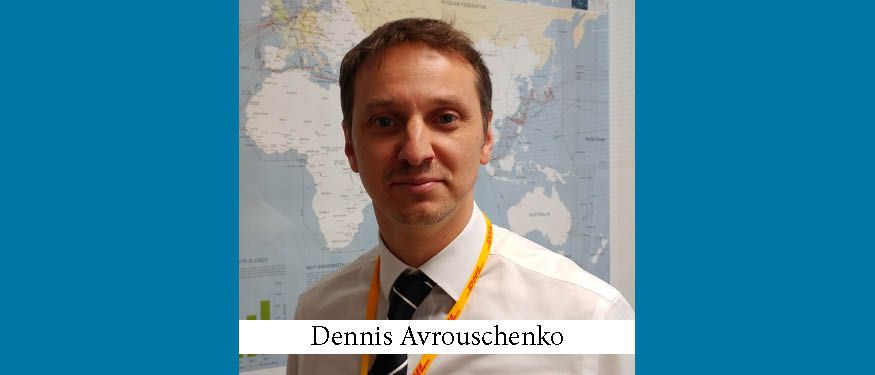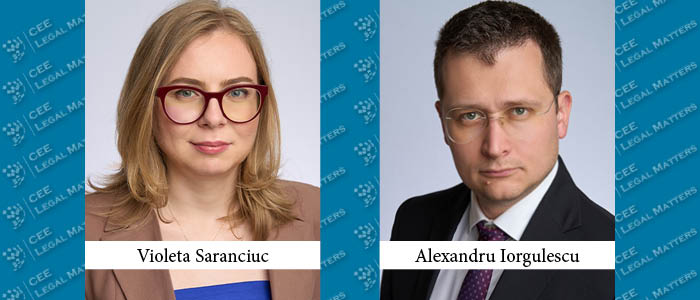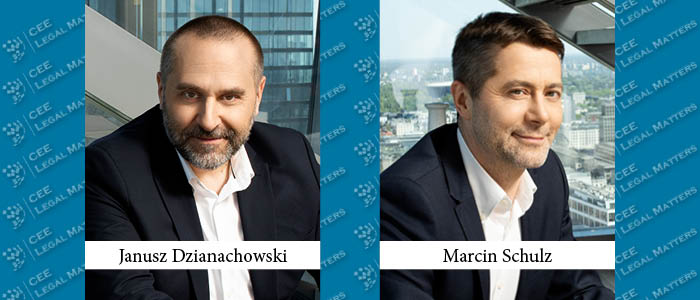Dennis Avrouschenko is the recently appointed Head of Legal & Compliance, CIS & East Europe at DHL. Previously, he worked for Gazprombank, where he was a Business Support Head / Capital Markets. Earlier still, he was the Head of Legal & Compliance at ZAO Standard Bank, a Legal Adviser with Deutsche Bank, and the Head of Corporate and HR Department with RAO UES. Before moving in-house, he worked with Allen & Overy Legal Services in Moscow
CEELM:
As a warm up, please tell our readers a few words about your career leading up to DHL.
D.A.: I graduated from Moscow State University in 1997. Early in my career, I spent about a year and a half with the international law firm Allen & Overy, where I focused mostly on capital markets and banking. As you might know, 1998 was a crisis year here in Russia and A&O reduced their practice in capital markets, which meant that, unfortunately, most of us in the team had to leave. This marked the beginning of my in-house life, which I have spent mostly with large banking institution such as Deutsche, South African Standard Bank, and Gazprombank, where I stayed for more than seven years.
As to my current role, I’d say simply that one meeting with my predecessor here changed my life, as he made me consider changing my focus from the financial sector to something absolutely different in DHL and coming back to a purely legal and compliance role, which I had missed during my life with Gazprombank. To clarify, with Gazprombank I spent a lot of time on the administration and business side of things. That included some compliance work, some corporate governance, and so on, but not really any pure legal work. Missing that area is the main reason I agreed to talk to DHL at the initial stage. If I am completely honest, the fact that I didn’t see any prospects for me personally at the bank also played a part – in part because of the lack of future interesting projects in the banking sector for various reasons. Putting the two together, I thought it’d be a great opportunity to join DHL, and I am highly appreciative towards the DHL management, who gave me the opportunity to come in and strengthen the legal function here.
CEELM:
Your previous role with Gazprombank is indeed not the typical one we see for in-house counsel. Can you elaborate for our readers what role you played as a lawyer in – as you describe it on Linkedin – “developing capital markets business for the bank.”
D.A.: At the time I joined the bank there was a drive to hire lawyers in various departments – such as in capital markets but also in some of the general banking areas – not to act as legal advisers but to focus mostly on deals and day-to-day transactions. We were focused on brokerage, sales, and trading, establishing new entities and setting up intergroup structures within the capital markets team, and our legal expertise was useful in that exercise. We’d of course push matters towards the legal team when necessary.
As the business support head I also focused on the administration of different affiliated companies established in Russia and abroad. For example, we arranged and started up the Hong Kong presence – a rather difficult project in light of the sanctions in place.
CEELM:
Why did the sanctions impact that particular project?
D.A.: When we’re talking about China, which does not support any of the sanctions applied by the EU or US, there is a sense that the general environment is not particularly welcoming when it comes to entering. There is a general feeling that people do not really trust you in terms of what is being introduced and whether you are trying to breach the sanctions imposed on you. Even outside the list of countries that agreed to the sanctions, all are rather suspicious of Russian businesses.
I should stress that Gazprombank was never aiming to breach the sanctions in place. It was simply looking to expand its presence – which is only normal for a large institution and natural, since China is an interesting and promising market in general.
CEELM:
You only spent a relatively brief period in private practice. What made you stay in-house since 1998?
D.A.: Indeed, as I mentioned, I started with A&O, which is a very good experience for anybody coming in from university benches. We were exposed to different fields of law: oil and gas, corporate, etc., which means you can try different areas and explore what you would want to go deeper into. I spent a lot of time with lawyers who were a lot more senior than me, and that helped me learn a lot about the banking world – that’s when I gained my understanding of the industry: Not just out of books but first-hand experience in the industry, working with the biggest names.
As I mentioned, the crisis made the decision for me and eventually I had to move on. I can say now that I prefer staying on the corporate side – I understand it much more by now and to be an external lawyer, again, you should (in a higher position of course) spend a lot of time on administration stuff which is not law at all. Such administration concerns are rarer on the corporate side. For example, you don’t need to worry about attracting various clients – you have just the one and you can focus on its legal needs.
CEELM:
In our interview with your predecessor, Sergei Stefanishin, in the April 2016 issue of the CEE Legal Matters magazine, he talked about the extensive process of getting to know the company when he first joined. Almost two months into that same role, now, how settled in do you feel?
D.A.: Keep in mind I changed roles dramatically. I came to a field where the applicable law is rather unfamiliar to me (not capital markets and not banking at all). Sure, the general rules and environment in Russia is more or less common but the specifics are, of course, quite different. I am now trying to understand the business from different angles. I do enjoy seeing another industry.
I have known Sergey for quite a long period. The team that is in place, as I can see now, is very tight – the members of the team have been together for a long time and are now very experienced. Most of them have been here for over five years, and they’ve helped me understand how things work around here. With that in mind, I can’t see any big changes in terms of the team here. If it’s not broken, don’t fix it!
CEELM:
Looking towards the future, what is the next big project for your legal team?
D.A.: Looking at the current set-up, I think there are several types of risks in terms of the changes in the Russian legislation related to post services and freight forwarding, and I would like to focus on that and generate various scenarios as to how we’ll need to move forward. The new rules don’t appear to apply to us, in theory, but if it turns out they will apply to DHL we’ll need to spend quite a lot resources to comply. At the moment we are not regulated as much, and if we are, we’d need to address many areas. Again, officially we shouldn’t have to, but we may need to be proactive on it to manage the risk.
CEELM:
Turning our attention to the Russian market, how is the climate these days both in terms of the economy as a whole and your own business?
D.A.: I’ve had a lot of internal meetings, and the general impression I got is that business is going very well. The news here is a bit surprising, because in general the Russian economy is not in a great place. The ruble value for the last two years is very unfriendly to a lot of people and most have slowed down in spending.
In terms of the market in general, we’re still struggling with the sanctions because providing even some services as an international company we need to always control and be in line with the sanctions in place. We are very careful here because I would say even our business is affected.
CEELM:
On the lighter side, looking back at your career, what was the funniest moment in the workplace?
D.A.: Not a lot of funny stories to share really. One that I can recall is from about ten years ago. It was an April Fool’s Day joke: We had quite a lot of foreigners in Moscow, and we circulated a message that the Russian Government decided to implement a rule based on which they’d need pass exams on the Russian language, the history of the Russian banking system, etc., to be able to work in the management of a bank. They all scrambled and a few hours later they had all even written to HQ asking for a budget line for the needed courses.
This Article was originally published in Issue 3.5 of the CEE Legal Matters Magazine. If you would like to receive a hard copy of the magazine, you can subscribe here.





























